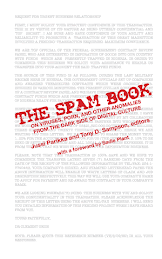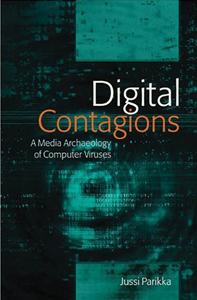
The room Hel 252 is starting to have good karma as the remix-class room at Anglia Ruskin. Not because its equipped with computers, editing equipment or such, but because it is starting to have a good track record as the room where we have now hosted both the screening and discussion of RIP: Remix Manifesto with Brett Gaylor, and now also discussed the work of Eclectic Method -- one of the most well known remix-acts.
Geoff Gamlen, a founding member of Eclectic Method, visited us in the context of Professor Nicholas Cook's talk on musical multimedia. Professor Cook continued themes that were addressed already in his 1998 book on the topic and now followed up in the form of a new book project that
 deals with performance. With a full room of excited audience, Cook gave a strong presentation on hot topics in musicology and the need to move to new areas of investigation, as well as showing how such ideas relate to the wider field of cultural production in the digital age. Remix-culture is not restricted to music but where such examples as Eclectic Method (or we could as well mention for example Girl Talk) are emblematic of software driven cultural production that ties contemporary culture with early 20th century avant-garde art practices, and shows how political economy of copyright/copyleft, of participatory and collaborative modes of sharing and producing, of aesthetics of image/sound-collages and synchronisations, all are involved in this wider musical assemblage. What Cook argued in terms of musicological approaches that, in my own words, are suggesting "the primacy of variation" was apt. Such performance practices as Eclectic Method's are important in trying to come up with up-to-date understanding of what is performance, what is the author, and how performance practices relate to wider media cultural changes that are as much about the sonic, as they are about pop cultural aesthetics -- hence the examples on Tarantino were apt in the presentation. We need to move on (whether in terms of the epistemic frameworks or the legal ones) from the 19th century romantic notion of the Creator as the source of the artwork to what I would suggest (in a kinda of a Henry Jenkins sort of way) to an alternative 19th century of folk cultures where sharing and participating was the way culture was distributed, and in continuous variation. Despite the increasing amount of skeptics from Andrew Keen to Jaron Lanier (and in a much more interesting fashion Dmytri Kleiner), who also rightly so remind us that Web 2.0 is not only about celebration of amateur creativity and sharing but a business strategy that compiles free labour through website bottlenecks into privatized value, I would suggest that there is a lot to learn from such practices of creation as remixing and their implications for a theoretical understanding of musical and media performance.
deals with performance. With a full room of excited audience, Cook gave a strong presentation on hot topics in musicology and the need to move to new areas of investigation, as well as showing how such ideas relate to the wider field of cultural production in the digital age. Remix-culture is not restricted to music but where such examples as Eclectic Method (or we could as well mention for example Girl Talk) are emblematic of software driven cultural production that ties contemporary culture with early 20th century avant-garde art practices, and shows how political economy of copyright/copyleft, of participatory and collaborative modes of sharing and producing, of aesthetics of image/sound-collages and synchronisations, all are involved in this wider musical assemblage. What Cook argued in terms of musicological approaches that, in my own words, are suggesting "the primacy of variation" was apt. Such performance practices as Eclectic Method's are important in trying to come up with up-to-date understanding of what is performance, what is the author, and how performance practices relate to wider media cultural changes that are as much about the sonic, as they are about pop cultural aesthetics -- hence the examples on Tarantino were apt in the presentation. We need to move on (whether in terms of the epistemic frameworks or the legal ones) from the 19th century romantic notion of the Creator as the source of the artwork to what I would suggest (in a kinda of a Henry Jenkins sort of way) to an alternative 19th century of folk cultures where sharing and participating was the way culture was distributed, and in continuous variation. Despite the increasing amount of skeptics from Andrew Keen to Jaron Lanier (and in a much more interesting fashion Dmytri Kleiner), who also rightly so remind us that Web 2.0 is not only about celebration of amateur creativity and sharing but a business strategy that compiles free labour through website bottlenecks into privatized value, I would suggest that there is a lot to learn from such practices of creation as remixing and their implications for a theoretical understanding of musical and media performance.Eclectic Method's work...range from political remixes...
...to pop/rock culture synchronisations...








No comments:
Post a Comment